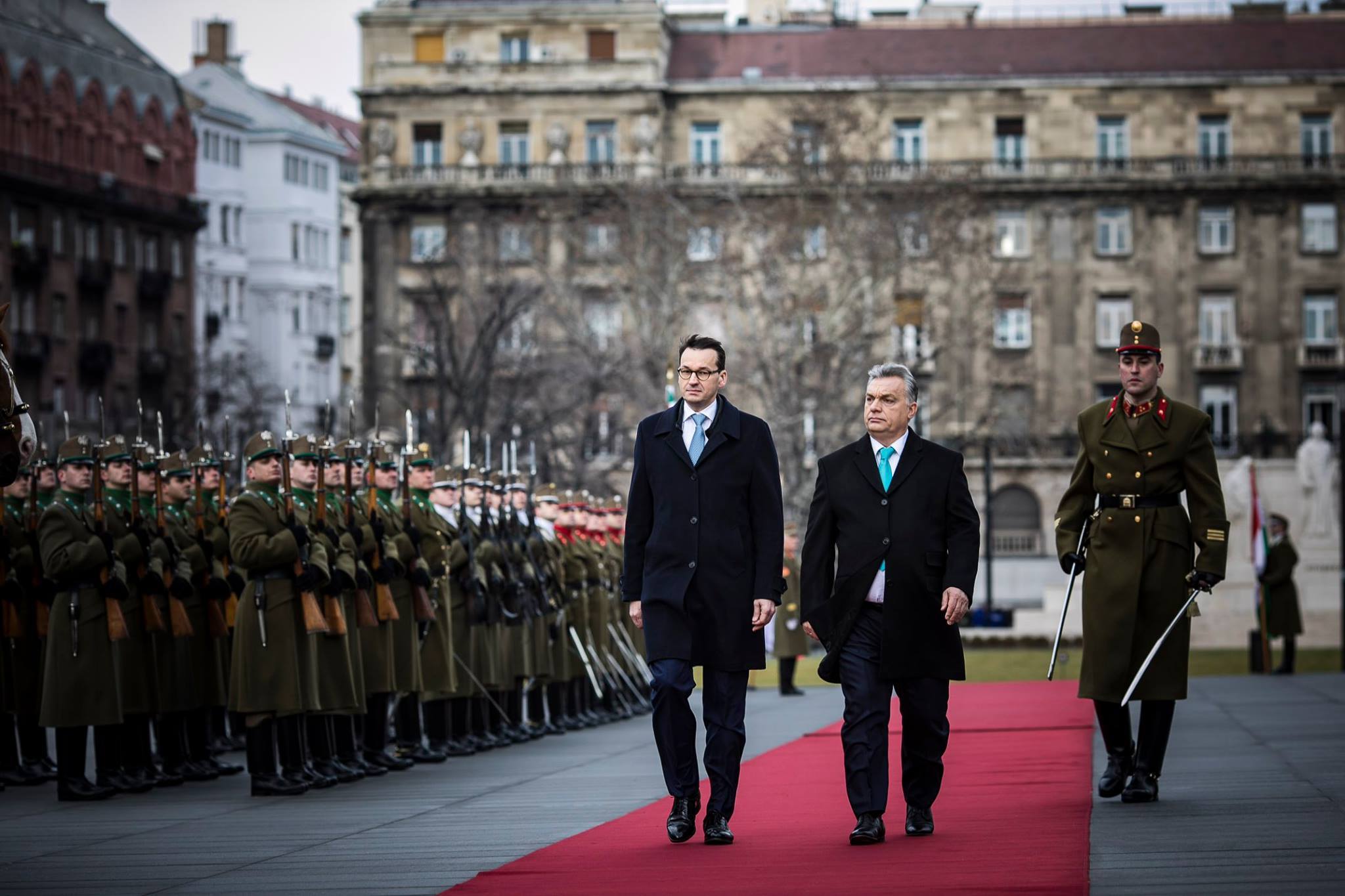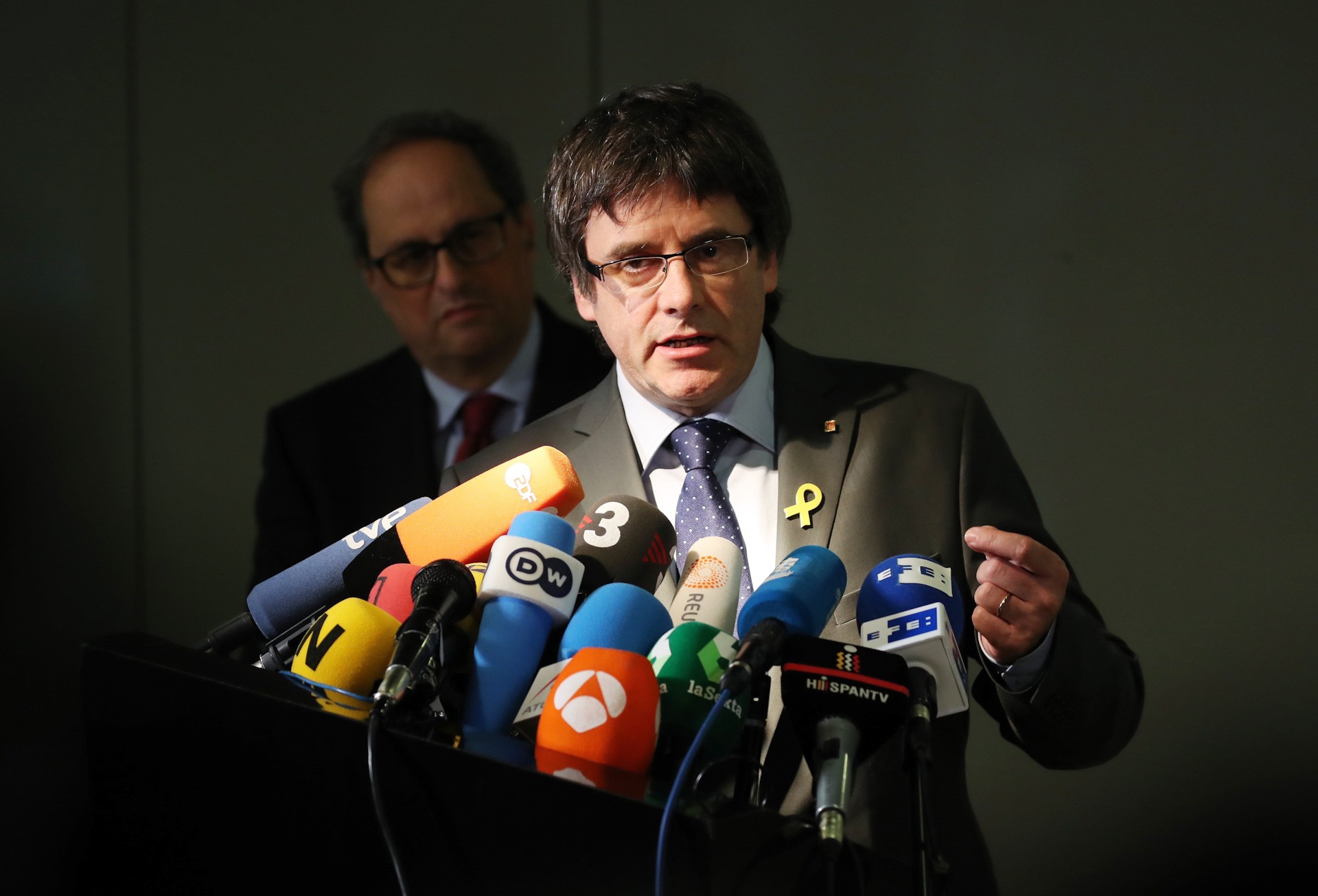
Brexit apart, the crisis that currently threatens to challenge the very principles upon which the EU is based, concerns the refusal of Eastern European states, especially Poland and Hungary, to adhere to what is commonly referred to in EU circles as European values, but which to many, especially in Eastern Europe, look nebulous and culturally unrepresentative.
The value-conflict has particularly intensified over the EU’s migrant relocation programme with which Poland, as well as other Eastern European states, have refused to comply, defending their position in a hard-hitting propaganda war with the EU.
Poland’s judicial reforms have similarly irked the EU, which claims will politicise the judiciary but which the Polish government argues are necessary to remove power over judicial appointments from what it believes is a self-serving judicial elite. So heated has the stand-off become that in December 2017 the EU Commission triggered Article 7 of the Treaty of Lisbon, starting a process that could lead to a suspension of Poland’s voting rights in the Council of Ministers. Financial sanctions have also been touted.
[alert type=white ]The Author: Gregory Slysz is a graduate of the Universities of Oxford and London. He holds a Ph.D in Politics and international relations. Currently, he is Head of History at a leading private college in London as well as a writer on current affairs, Eastern Europe and Russia and late medieval English history. [/alert]
Hungary too, under its long-serving Prime minister, Viktor Orban, has fallen foul of the EU’s edicts. Its similarly uncompromising stance against migration quotas as well as a series of reforms on a range of judicial, educational, banking and media issues, has elicited accusations from the EU of illiberalism and has similarly prompted threats of sanctions against Budapest.
Notwithstanding the merits of each position, the EU’s transnationalism is increasingly being threatened with a model of European development advocated by Warsaw and Budapest which champions the interests of sovereign nation-states above any transnational considerations. Its appeal to Eastern European states, with their grim Soviet experiences, is clear, despite divisions among them over various socio-economic and political issues.
Yet, irrespective of developments in Eastern Europe, a ‘Europe of nations’ is gaining appeal in Western Europe too. While support for EU membership across the whole of the EU remains relatively stable, a ‘United States of Europe’ which has been so favoured by Berlin and Paris, is being increasingly rejected. Indicative of this is majority support among member states for the repatriation of powers from Brussels in such fundamental policy areas as migration and international trade policy, confirming trends of recent national elections across the Continent, most recently in Austria. Such sovereignist sentiments are reinforced further by a belief among EU citizens that Germany has too much influence over European affairs.
But Germany’s influence in Europe may well be fading. Beset by unprecedented levels of post-war social division, brought about by disagreements over the future course of the EU and over the issue of mass migration, it has struggled to form a government. France, Germany’s key partner in the promotion of the integrationist project, is similarly troubled, and for similar reasons, so much so that in a recent interview with British television, France’s president, Emmanuel Macron was compelled to concede that France would ‘probably’ have voted the same way as Britain in a in/out referendum.
With the old European integrationist project unravelling, ‘new’ Europe, once derided and patronised by the French President, Jacques Chirac, as ‘infantile’ for daring to break ranks on the issue of the Iraq War, is now asserting its counter model. What is most worrying for the old centres of EU power, is that Poland, as leader of this alternative way of European development, is in an increasingly stronger position from which to resist EU pressure. Not only is it formally supported by Hungary, which will render futile any attempt by the EU to impose economic and political sanctions against it but it is also forging a position for itself as a significant energy hub from which to distribute Norwegian and American gas to other Eastern European countries, anxious about their over-reliance on Russian energy supplies.
Notwithstanding existing logistical and infrastructural difficulties across the region which would render such ambitions currently difficult to fulfil, a notable start has been made. A five-year contract between the Polish state-owned Oil and Gas Company Group (PGNiG) signed in November, 2017 and the American firm, Centrica has been backed by the Trump administration, which is also keen to break Russia’s overbearing influence over energy provision in Europe. This has certainly strengthened Poland’s hand in the on-going gas wars, notably in its legal disputes with the EU over the construction of the controversial ‘Russo-German’ Nordstream 2 pipeline under the Baltic that is set to further Russia’s energy position in Europe and in future negotiations with Russia over gas supplies.
Bolstering Poland’s regional authority further is its recent impressive economic performance that has seen annual growth rates of nearly 4 per cent. Of course much of this growth has been boosted by EU funds, but these, as Jean-Claude Junker conceded following a meeting with Poland’s new President, Mateusz Morawiecki, in January 2018, are not under threat. He stated this is in full knowledge that the knock-on effect for the EU, especially German exports, of undermining Poland’s economic development would not only be excessively costly but could risk further emboldening euroscepticism in Eastern Europe.
It does not appear that this stand-off will be resolved any time soon. However, the zero-sum cultural game that the EU is playing certainly appears redundant, at least for as long as populist influences in Eastern Europe remain politically dominant – and there’s no prospect of this changing in the foreseeable future. An eventual face-saving fudge is unlikely to ameliorate deep-rooted differences. The new Prime Minister’s declaration during an interview with a Polish Catholic TV station soon after taking office that Poland as a proud Christian nation will not succumb to EU ‘blackmail’ and that it would be best for Europe to supplement its financial resources with Christian values, must have sent shudders through the EU’s secular elites.
The EU now faces a great dilemma: does it concede and risk loss of authority or does it adapt its political structures to accommodate competing cultural models? Or will the cultural differences between ‘old’ and ‘new’ Europe prove too much for the survival of its governing ideology. Triggering Article 7 has not been called the ‘nuclear option’ for nothing.



